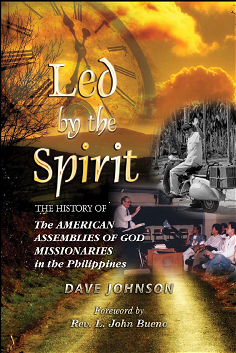Led by The Spirit: The History of the American Assemblies of God Missionaries in the Philippines, Preface and Introduction
The birth of the Assemblies of God and its missions program should be understood within its historical context. The nineteenth century had seen great growth in the spread of the gospel as missionaries, primarily from the Western nations, had circled the globe. This was aided, at least in part, by the expansion of the Western colonial powers. There were benefits and abuses with colonialism, and the United States experience in the Philippines was no exception. The underlying colonial mentality was that Western culture was superior to all others, an attitude to which some missionaries, being products of their times, were not immune. This superiority began to be unmasked when, in 1914, the year in which the Assemblies of God was founded, the Western world was plunged into the horrors of World War I.
There were benefits and abuses with colonialism, and the United States experience in the Philippines was no exception.
As early as the General Council meeting in 1915, the Assemblies of God went on record as calling for the establishment of indigenous churches after the New Testament pattern.2 These churches would be self-governing, self-supporting, and self-propagating. By 1915, the Movement was also establishing the pattern of appointing missionaries. Its earliest application form was simple and straightforward, asking questions about the prospective missionary’s experience with salvation and the baptism in the Holy Spirit, as well as inquiring if the belief in divine healing allowed for visiting the doctor. Candidates were required to state that they were willing to encourage local churches to support them, and that they would also be willing to ultimately trust God for His provision.
God was moving, and doors for the Pentecostal witness were opening.
The present missionary movement of the Division of Foreign Missions is the outgrowth of precise missionary concepts undoubtedly authored by the Holy Spirit and implanted in the hearts of early pioneers who knew the New Testament but were in no sense missiologists. However, the things they said, the papers they wrote, the concepts they adopted, the dreams they dreamed, are still being carried out today. The present worldwide movement and fraternal fellowship numbering in the millions are the product of a few principles announced by these pioneers and incorporated in the bylaws of the General Council of the Assemblies of God.3
The identity of those who followed those dreams to the Philippines, their actions, and their results will unfold in the chapters that follow.
PR
This chapter is an excerpt from Dave Johnson, Led By The Spirit: The History of the American Assemblies of God Missionaries in the Philippines (Pasig City, Philippines: ICI Ministries, 2009). Used with permission.
Notes
[Editor’s note: At the time of online publication, an error was discovered with the end notes for the Introduction. Please see the original hardcopy edition or contact David Johnson for clarification.]
Further Reading:
Read Malcolm Brubaker’s review of Led by the Spirit in the Summer 2010 issue of The Pneuma Review: http://pneumareview.com/dave-johnson-led-by-spirit/
Download the full book (in PDF) at: https://www.academia.edu/34297392/LED_BY_THE_SPIRIT.pdf
Find more excellent books from APTS Press, home of the Asian Journal of Pentecostal Studies.
Category: Church History, Summer 2019



